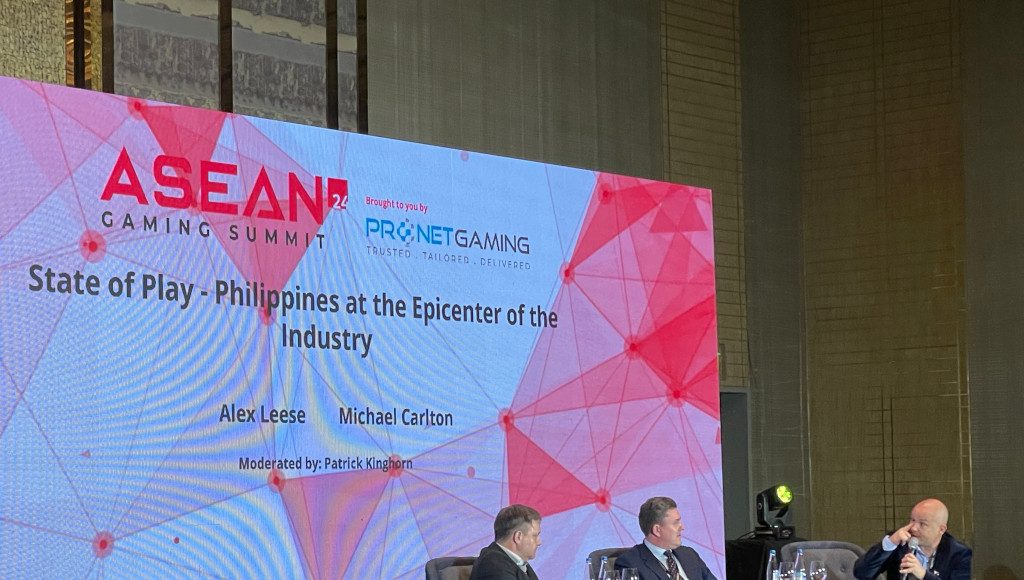The Philippines might be the epicenter of Asian gaming, but other territories are also rising. That was the conclusion of the State of Play panel at ASEAN 2024 in Manila.
Pronet Gaming CEO Alex Leese and Entain Asia Pacific Director Michael Charlton were joined by moderator Patrick Kinghorn to discuss developments in various markets across Asia and the world. In Asia, the Philippines is on the minds of many operators, with its new regulatory environment offering a promising proposition for companies wishing to target the region. The country is also reemerging as a business hub for gaming companies, with Pronet Gaming being among the growing number of firms that have chosen to base themselves here recently.
Outside of the Philippines, Japan remains of great interest to many. Michael Charlton explained that the creation of the first IR in Osaka has been a long and hard road. As a result, the journey to seeing a digital sportsbook or casino is expected to be no less difficult and time consuming. He mentioned further that there appears to be a desire by Japanese authorities to do something, a feeling underscored by recent enforcement actions in the country. The Japanese government appears keen to increasingly go after grey market operators but the impression in the industry is that this will take years to go through the required regulatory motions.
The panel agreed that strong willed politicians are needed to initiate regulatory change, and that this may not be the biggest priority in Japan at the moment. The political struggle around the integrated resort showed that it will likely be some time before a new regulatory process for digital products will come.
Vietnam received a brief mention, with the country having made progress since last year but not being quite there yet when it comes to regulated sports betting due to political challenges behind the scenes. Thailand was also mentioned, with positive noises being perceived from the country for online casinos and eventually sportsbooks, too.
Looking further afield to LatAm, Brazil almost inevitably became a topic. The country is on the brink of regulating, but it will take another 18 months to two years until the new rules really kick in, according to the experts. Operators are starting to invest now to get everything into place they need to launch legal operations, with sponsorships, affiliates and local ambassadors requiring huge levels of investment from those who want to come out on top.
The fact that the new rules in Brazil allow for the operation of three URLs provides an opportunity for existing operators to partner up or make an acquisition, thereby speeding up market entry. Once in the market, the panel warned against lazy player acquisition strategies based on the false presumption that because the country is football mad, its citizens also love to bet on the sport. According to the panellists, 85 to 90 percent of revenue comes from casino games.
There was a consensus on stage that now is the right time to enter Brazil, and that if a country where the church is so powerful can legalise gambling, many others can, too. Political pressures will inevitably triumph over other factors. Business traffic is not just one way however, as Asian operators are being observed entering LatAm at the same time as LatAm companies are trying to enter Asia.
The way to open more markets to regulated gambling always leads through politics, with a recent statement by the Malaysian PM that a sportsbook would be a great thing being cited as a positive example. These regulatory changes require the perfect environment to succeed and will always be a challenge. Whenever a new jurisdiction moves into regulated gambling, it is usually sports betting that comes first, followed by casino.
Finally, India was the topic of conversation, with the consensus being that the country is no closer to regulation, but Asian companies continue to drive resources into the region. Many operators targeting India at the moment are based in Dubai, which may be the reason behind recent speculations that the state might be looking at bringing in a regulatory framework for these companies.











